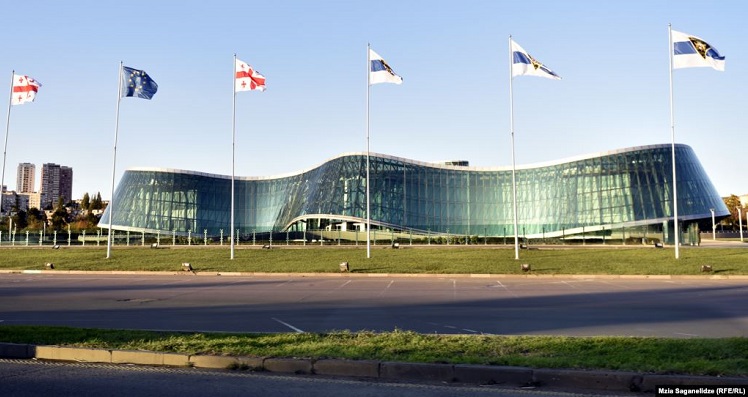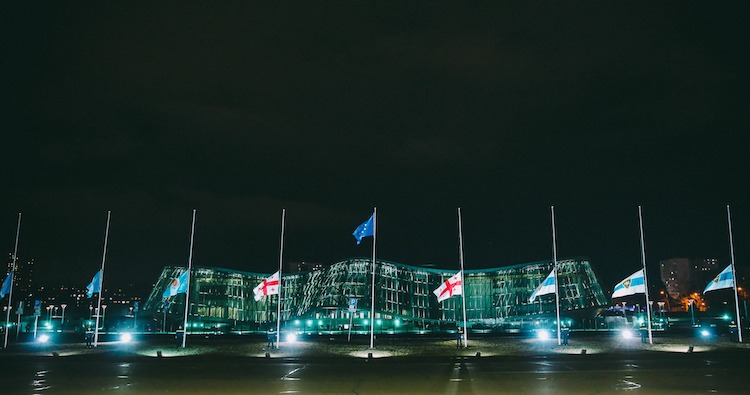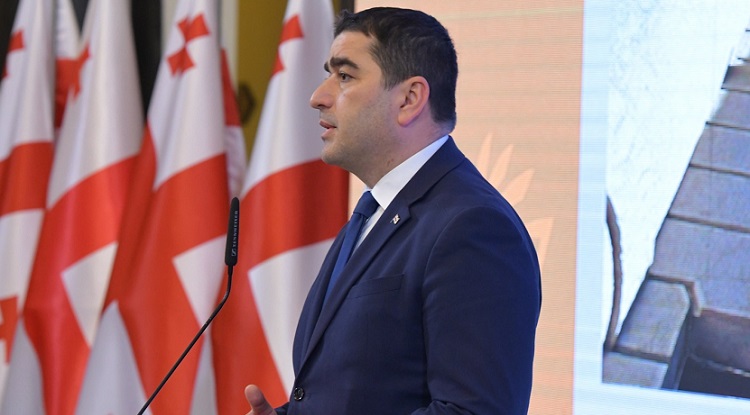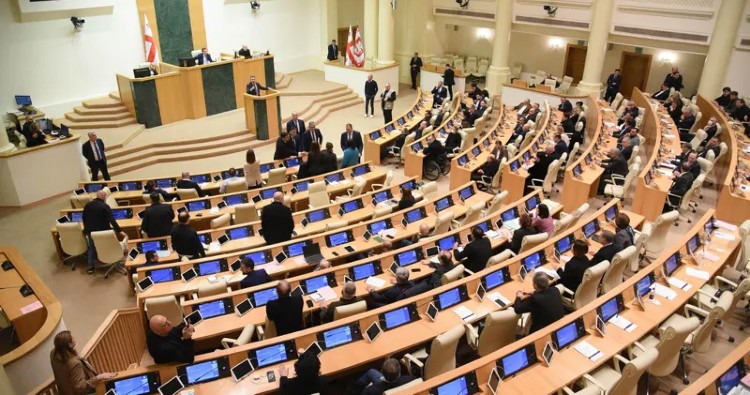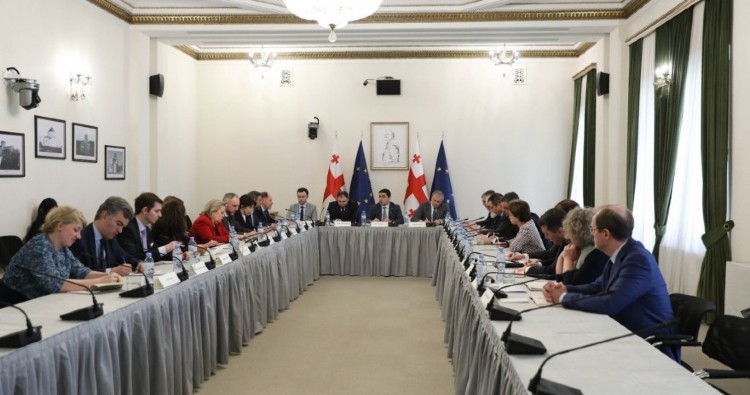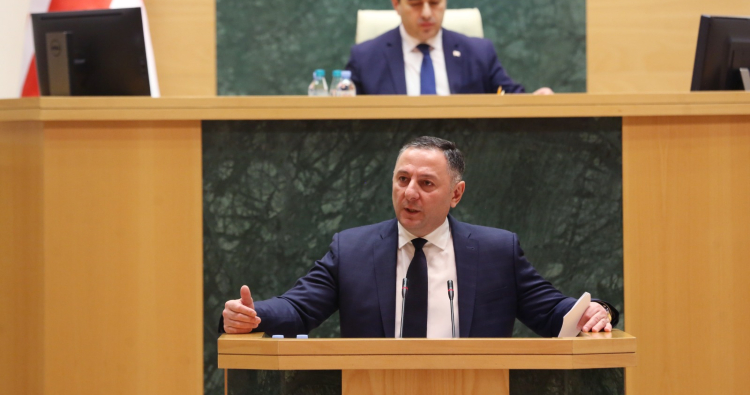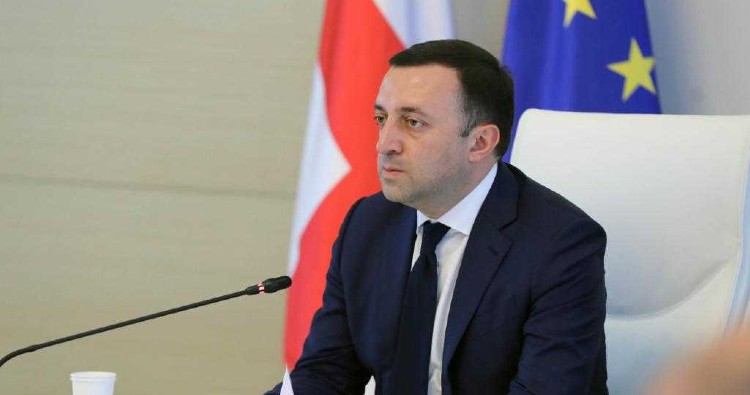Ruling party will not revert to bill on transparency of foreign influence - PM
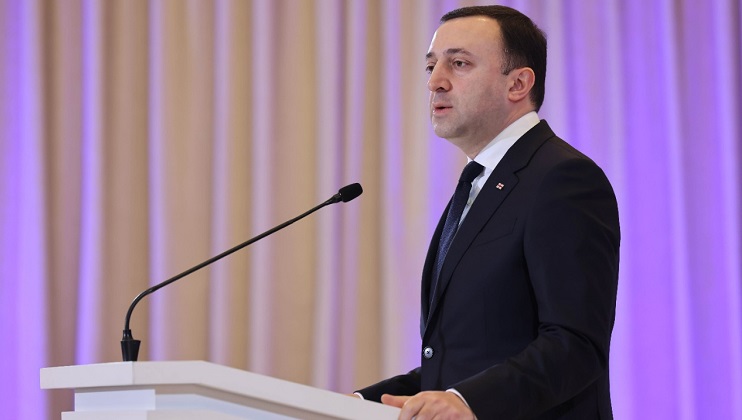
The bill was then withdrawn by Georgian Dream following the rallies, with the party citing “importance of peace” in the country, and was rejected in a formal move at the legislative body in early April. Photo: Government Administration
Georgian Prime Minister Irakli Garibashvili on Wednesday said he had “clearly confirmed” to country’s European and American “friends” that the ruling Georgian Dream party would not revert to the domestic bill on transparency of foreign influence, which it retracted from the Parliament voting following domestic and international backlash in March.
Proposed by People's Power, a public movement established by former MPs of the party, the legislation involved registration of non-commercial legal entities and media outlets in the country as “agents of foreign influence” if they derive more than 20 percent of their funding from abroad.
“Our European and American friends were wondering about this question. I clearly confirmed, on behalf of our team, our position that Georgian Dream is not going to return to the bill on ‘agents of foreign influence’. This issue is closed, and we will not return to this issue”, Garibashvili said in response to a question from a journalist at the Georgia Cybersecurity Forum.
The bill was met by a backlash from the domestic opposition, civil sector and diplomatic representations in the country, who claimed threats to democratic principles from the bill’s potential adoption.
People's Power said the bill had become a “target of unjustified criticism”, and said comparisons drawn with a law in Russia were “categorically unacceptable”. The movement said “unlike the American and Russian laws” the bill was “fully compatible with legal standards, including in terms of human rights”.
A public protest launched against the legislative piece in early March outside the Parliament of Georgia in capital Tbilisi saw 58 law enforcement officers receive “various injuries” in clashes with demonstrators.
The domestic reaction took place as the Georgian Parliament Speaker Shalva Papuashvili requested the opinion of the Venice Commission of the Council of Europe on the controversial bill the same month.
The bill passed the first hearing at the Georgian Parliament, where 76 MPs out of registered 113 members supported it at a plenary session of the lawmaking body. The heated sessions between MPs were held while authorities said they would await the Commission’s opinion before scheduling the second hearing at the lawmaking body.
The bill was then withdrawn by Georgian Dream following the rallies, with the party citing “importance of peace” in the country, and was rejected in a formal move at the legislative body in early April.
 Tweet
Tweet  Share
Share

